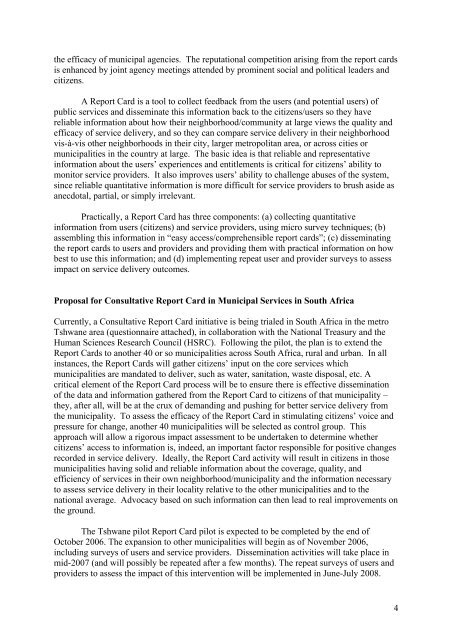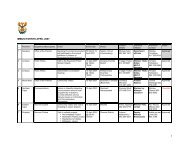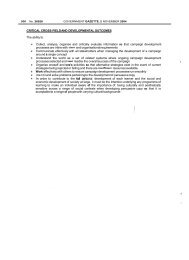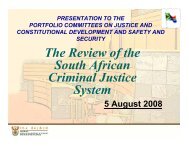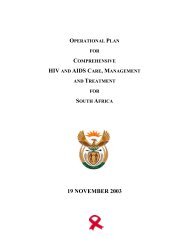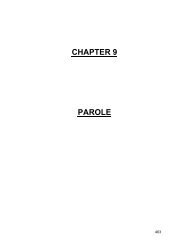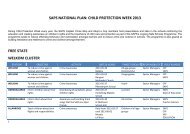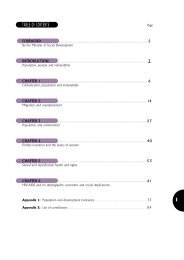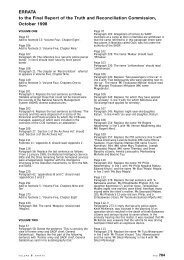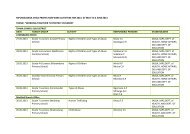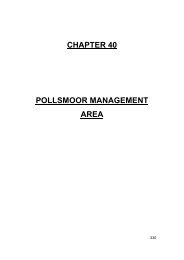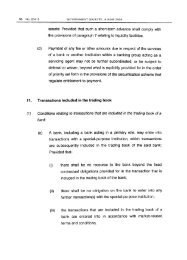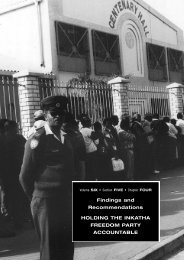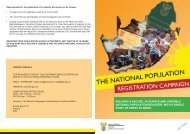Citizen Report Cards to Improve Service Delivery - South Africa ...
Citizen Report Cards to Improve Service Delivery - South Africa ...
Citizen Report Cards to Improve Service Delivery - South Africa ...
You also want an ePaper? Increase the reach of your titles
YUMPU automatically turns print PDFs into web optimized ePapers that Google loves.
the efficacy of municipal agencies. The reputational competition arising from the report cards<br />
is enhanced by joint agency meetings attended by prominent social and political leaders and<br />
citizens.<br />
A <strong>Report</strong> Card is a <strong>to</strong>ol <strong>to</strong> collect feedback from the users (and potential users) of<br />
public services and disseminate this information back <strong>to</strong> the citizens/users so they have<br />
reliable information about how their neighborhood/community at large views the quality and<br />
efficacy of service delivery, and so they can compare service delivery in their neighborhood<br />
vis-à-vis other neighborhoods in their city, larger metropolitan area, or across cities or<br />
municipalities in the country at large. The basic idea is that reliable and representative<br />
information about the users’ experiences and entitlements is critical for citizens’ ability <strong>to</strong><br />
moni<strong>to</strong>r service providers. It also improves users’ ability <strong>to</strong> challenge abuses of the system,<br />
since reliable quantitative information is more difficult for service providers <strong>to</strong> brush aside as<br />
anecdotal, partial, or simply irrelevant.<br />
Practically, a <strong>Report</strong> Card has three components: (a) collecting quantitative<br />
information from users (citizens) and service providers, using micro survey techniques; (b)<br />
assembling this information in “easy access/comprehensible report cards”; (c) disseminating<br />
the report cards <strong>to</strong> users and providers and providing them with practical information on how<br />
best <strong>to</strong> use this information; and (d) implementing repeat user and provider surveys <strong>to</strong> assess<br />
impact on service delivery outcomes.<br />
Proposal for Consultative <strong>Report</strong> Card in Municipal <strong>Service</strong>s in <strong>South</strong> <strong>Africa</strong><br />
Currently, a Consultative <strong>Report</strong> Card initiative is being trialed in <strong>South</strong> <strong>Africa</strong> in the metro<br />
Tshwane area (questionnaire attached), in collaboration with the National Treasury and the<br />
Human Sciences Research Council (HSRC). Following the pilot, the plan is <strong>to</strong> extend the<br />
<strong>Report</strong> <strong>Cards</strong> <strong>to</strong> another 40 or so municipalities across <strong>South</strong> <strong>Africa</strong>, rural and urban. In all<br />
instances, the <strong>Report</strong> <strong>Cards</strong> will gather citizens’ input on the core services which<br />
municipalities are mandated <strong>to</strong> deliver, such as water, sanitation, waste disposal, etc. A<br />
critical element of the <strong>Report</strong> Card process will be <strong>to</strong> ensure there is effective dissemination<br />
of the data and information gathered from the <strong>Report</strong> Card <strong>to</strong> citizens of that municipality –<br />
they, after all, will be at the crux of demanding and pushing for better service delivery from<br />
the municipality. To assess the efficacy of the <strong>Report</strong> Card in stimulating citizens’ voice and<br />
pressure for change, another 40 municipalities will be selected as control group. This<br />
approach will allow a rigorous impact assessment <strong>to</strong> be undertaken <strong>to</strong> determine whether<br />
citizens’ access <strong>to</strong> information is, indeed, an important fac<strong>to</strong>r responsible for positive changes<br />
recorded in service delivery. Ideally, the <strong>Report</strong> Card activity will result in citizens in those<br />
municipalities having solid and reliable information about the coverage, quality, and<br />
efficiency of services in their own neighborhood/municipality and the information necessary<br />
<strong>to</strong> assess service delivery in their locality relative <strong>to</strong> the other municipalities and <strong>to</strong> the<br />
national average. Advocacy based on such information can then lead <strong>to</strong> real improvements on<br />
the ground.<br />
The Tshwane pilot <strong>Report</strong> Card pilot is expected <strong>to</strong> be completed by the end of<br />
Oc<strong>to</strong>ber 2006. The expansion <strong>to</strong> other municipalities will begin as of November 2006,<br />
including surveys of users and service providers. Dissemination activities will take place in<br />
mid-2007 (and will possibly be repeated after a few months). The repeat surveys of users and<br />
providers <strong>to</strong> assess the impact of this intervention will be implemented in June-July 2008.<br />
4


